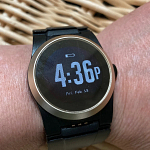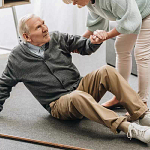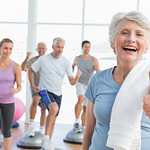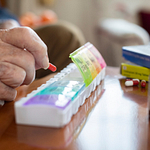Understanding the Role of Caregivers for the Elderly
Caregiving, in essence, is the act of providing help to another person in need, particularly those with health impairments like the elderly. The scope of caregiving can range from physical assistance, such as helping with daily activities, to emotional support like companionship. [source]
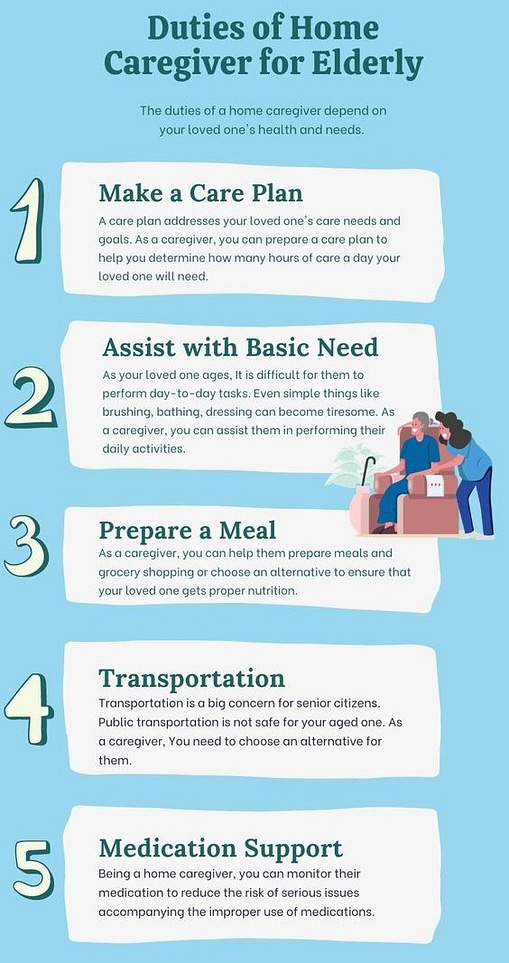
The importance of caregivers cannot be overstated. They play a critical role in ensuring the safety and well-being of the elderly, managing their medication, ensuring they eat healthily, and aiding in their mobility. Without caregivers, the elderly could be at risk of falls, malnutrition, and other health complications. [source]
However, challenges faced by caregivers
can be overwhelming. These challenges range from physical and emotional stress to financial constraints and lack of support. Understanding these challenges is crucial to providing caregivers with the necessary support and resources to carry out their roles effectively. [source]
For a comprehensive understanding of the role and challenges of caregivers, it’s recommended to include a chart or graphic illustrating the various tasks and issues faced by caregivers. This could help to visualize the breadth of their responsibilities and the complexity of their roles.
Essential Tools for Caregivers
As the population ages, caregivers are increasingly relying on advanced technologies to enhance the quality of elderly care. These tools not only improve the efficiency of caregiving but also foster independence among seniors.

Useful Gadgets and Devices in Elderly Care
Some essential tools include medical alert systems, such as Bay Alarm Medical, that notify emergency services at the press of a button. Additionally, medication management devices like MedMinder can ensure accurate dosage while reducing the risk of medication errors.

The Importance of Adapting to Technological Advancements
With the rapid pace of technological advancements, adapting to new tools is crucial for effective caregiving. These technologies simplify complex tasks, improve safety, and enhance the lives of seniors.

Utilizing Health Monitoring Devices in Elderly Care
The importance of health monitoring in elderly care cannot be overstated. As we age, our bodies become more vulnerable to a range of health issues, and regular monitoring can be crucial for early detection and treatment. Health monitoring devices allow for this constant vigilance, and they have become an indispensable tool in modern caregiving. Studies show that these devices significantly enhance the quality of life for the elderly by reducing the risk of severe health complications.

Understanding Health Monitoring Devices
Health monitoring devices can track a variety of health parameters, from heart rate and blood pressure to glucose levels and oxygen saturation. They work by using sensors to collect data, which is then analyzed and displayed on the device or sent to a caregiver’s device. This technology enables caregivers to track health trends, recognize abnormalities, and respond promptly.
Improving Patient Safety with Health Monitoring Devices
These devices are instrumental in ensuring the safety of elderly patients. They provide caregivers with real-time information, allowing them to intervene when necessary and prevent potential health crises. With these devices, caregivers can monitor patients remotely, reducing the need for intrusive check-ups and allowing for more comfortable and dignified care. Resources available support their effective use in elderly care.
The Importance of Medication Management in Elderly Care
Medication plays a crucial role in elderly care, significantly impacting the quality of life and overall health status of seniors. Proper medication management can prevent harmful drug interactions, over-medication, and non-adherence, all of which are common in elderly care. According to the FDA, older adults are prescribed more medications than any other age group in the US, making medication management critical for their safety.

Effective Tools for Medication Management
Technology offers a myriad of tools to streamline medication management. Apps like Medisafe and Mango Health provide medication reminders, track medication usage, and even offer health tips. Pill dispensers with alarms can also be effective in ensuring adherence.
Tips for Caregivers to Avoid Medication Errors
- Ensure clear communication with healthcare providers about the medication regimen.
- Maintain a current list of all medications, including over-the-counter drugs and supplements.
- Utilize medication management tools for reminders and tracking.
- Provide clear, written instructions for medication administration.
Remember, empowering caregivers with the right tools and resources is key to ensuring the safety and wellness of our elderly loved ones.
Utilizing Online Resources and Platforms for Caregivers
As a caregiver, an array of online resources and platforms are at your disposal. These resources are designed to provide support, share knowledge, and offer practical tools for caring for the elderly.
Among the benefits of these online platforms are telemedicine services, which eliminate the stress associated with traveling to medical appointments. These services also enable real-time communication with healthcare professionals, thus facilitating timely medical interventions. Additionally, online communities provide a platform for caregivers to share experiences, advice, and emotional support.

Top Websites and Apps for Caregivers
- Alzheimer’s Association: This website provides resources and support for those caring for individuals with Alzheimer’s.
- Care.com: This platform offers a range of caregiver services, including those for the elderly.
- CaringBridge: This app allows caregivers to share updates and coordinate support with a community of people who care about the person under their care.
By integrating these online resources into your caregiving routine, you empower yourself with knowledge, support, and practical tools that enhance the safety and well-being of the elderly in your care.
The Imperative of Caregiver Education and Training
Ensuring the safety of our elderly population is a collective responsibility that begins with empowering caregivers. By providing caregivers with the necessary education and training, we can enhance their ability to ensure the safety and well-being of our senior citizens. Studies have demonstrated that caregiver education significantly improves the quality of care, leading to better health outcomes for the elderly.

Training Programs and Resources for Caregivers
There are numerous resources and training programs available for caregivers. Government programs like the National Family Caregiver Support Program provide both education and support. Additionally, organizations such as the Family Caregiver Alliance offer online classes, webinars, and resource centers to equip caregivers with the skills they need.
Enhancing Caregivers’ Abilities through Education
Caregiver education is not just about imparting knowledge, but also about enhancing abilities. Through comprehensive training, caregivers can develop essential skills such as recognizing early signs of health deterioration, administering medication correctly, and understanding the emotional needs of the elderly. This empowerment through education is a critical step in ensuring elderly safety.
The Vital Role of Support Networks for Caregivers
When it comes to caring for the elderly, the significance of caregiver support networks cannot be understated. These networks provide a crucial lifeline, helping to alleviate the stress and prevent burnout often seen in caregivers. They offer a space for caregivers to share experiences, gather information, and even find respite, making their role more manageable. Studies show that caregiver support networks can significantly improve the caregiver’s mental health and overall well-being.
Exploring Available Caregiver Support Networks
There’s a myriad of caregiver support networks, both physical and digital. Local community organizations often provide support groups, training, and resources. Online platforms, such as Family Caregiver Alliance or AgingCare, offer forums where caregivers can connect and exchange advice. Furthermore, there are numerous national resources dedicated to caregivers.
Reducing Caregiver Stress with Support Networks
Support networks act as a buffer against the stress and burnout commonly associated with caregiving. They offer emotional support, practical advice, and often provide services that give caregivers much-needed breaks. By leveraging these networks, caregivers can ensure they’re providing the best possible care to the elderly while preserving their own well-being.
Conclusion: The Path to Empowered Caregiving
In the realm of caregiving for the elderly, the importance of tools, resources, and support cannot be overstated. They equip caregivers with the necessary skills, knowledge, and confidence to provide safe and effective care. Empowered caregivers can not only improve safety measures but also significantly enhance the overall well-being of our seniors.

Empowered caregivers serve as the backbone of a robust care system, making a profound impact on the lives of the elderly. Their roles, far from being static, require continuous learning and adaptation. With the surge of new caregiving techniques and technologies, it is pivotal to stay updated and adapt accordingly.
So, to all the caregivers out there, your role is vital. Keep learning, keep adapting and you’ll continue to make a significant difference in the lives of those in your care.
Further Reading and Resources
- Administration on Aging (AoA) – A wealth of resources and support for caregivers.
- AARP Family Caregiving – Provides tools, tips, and resources to help caregivers.


